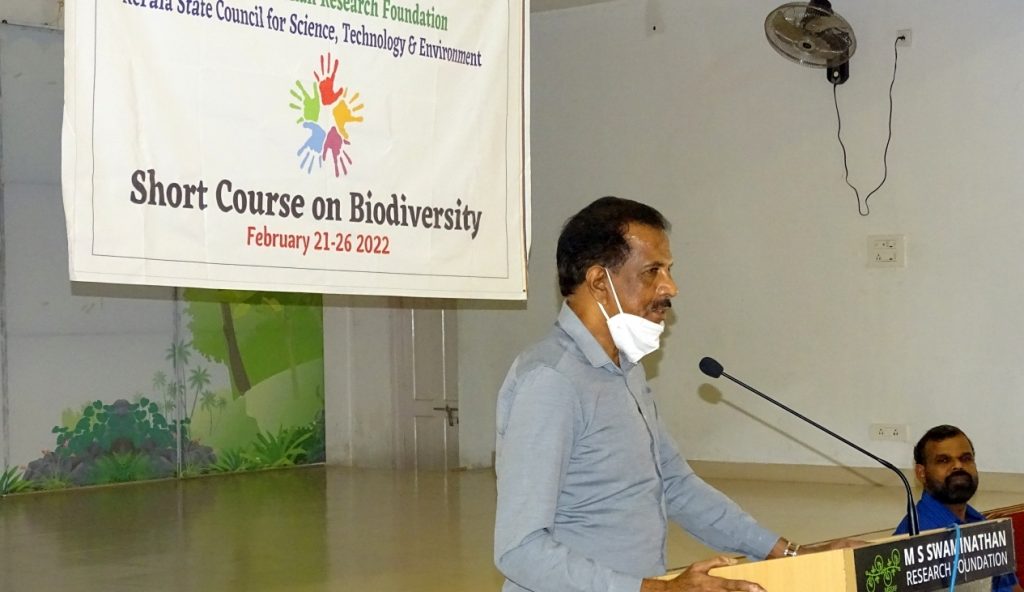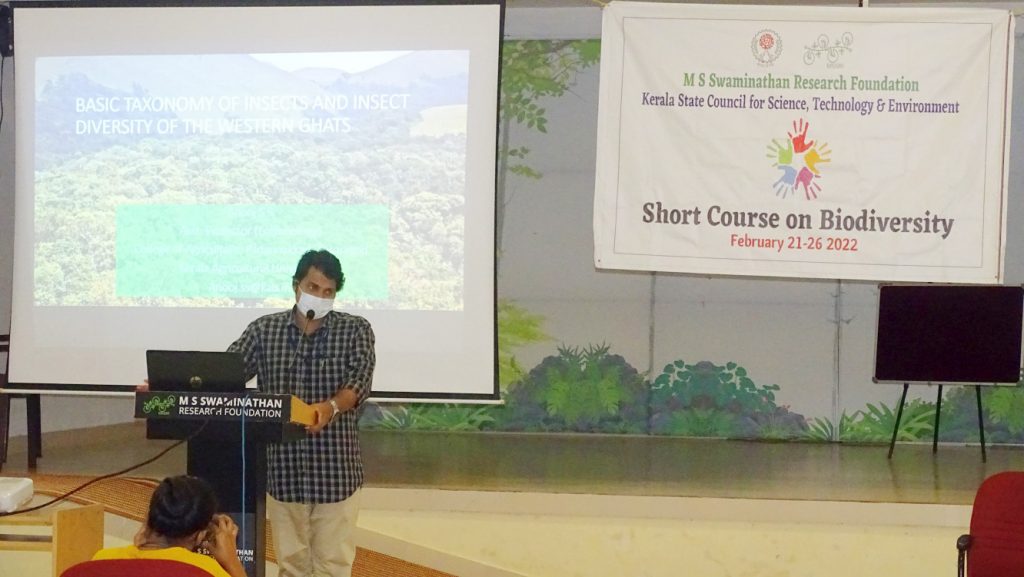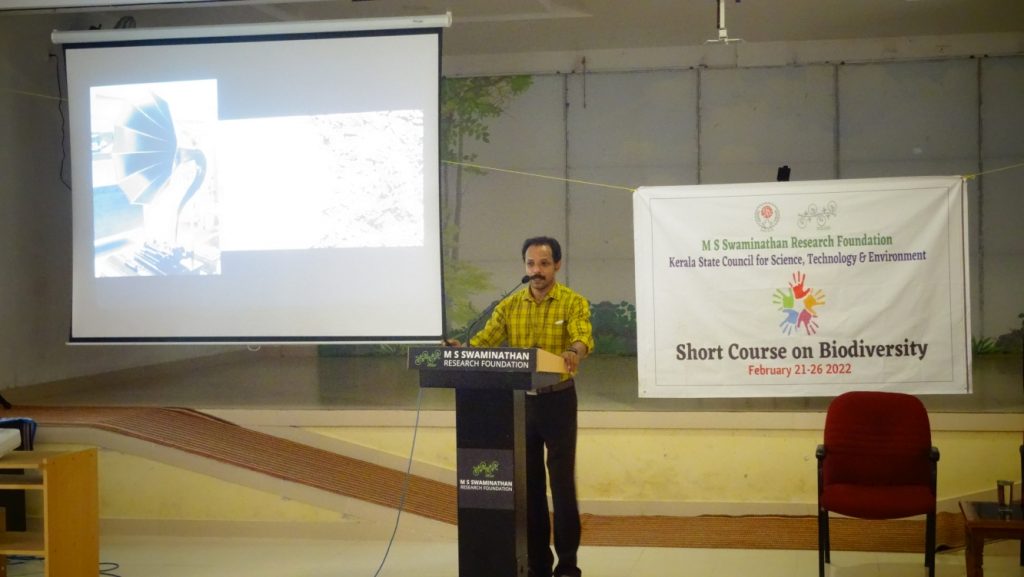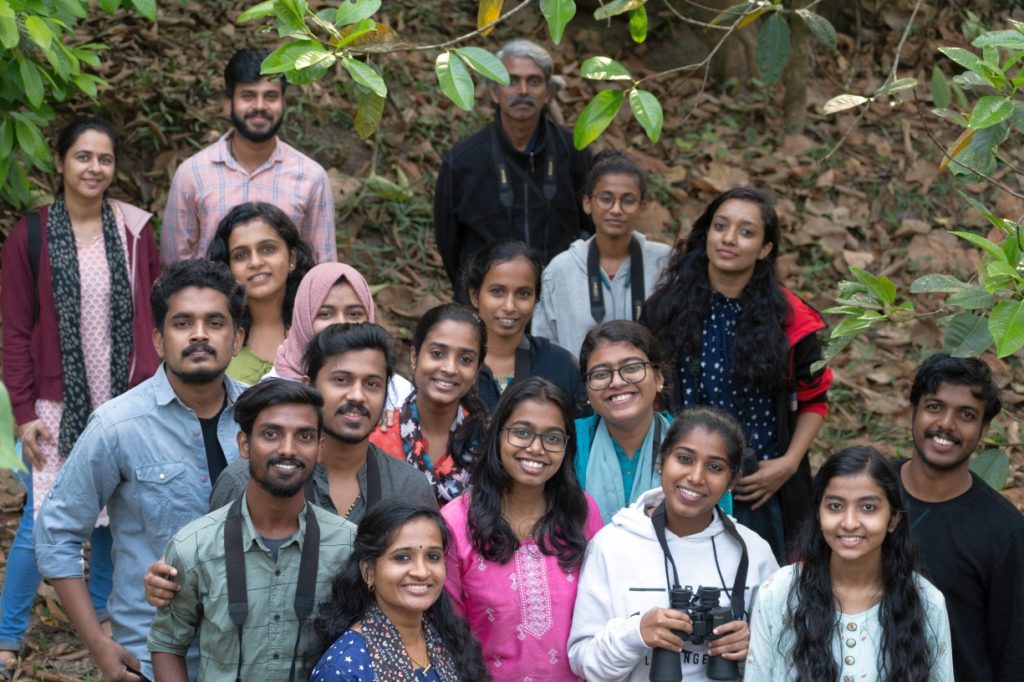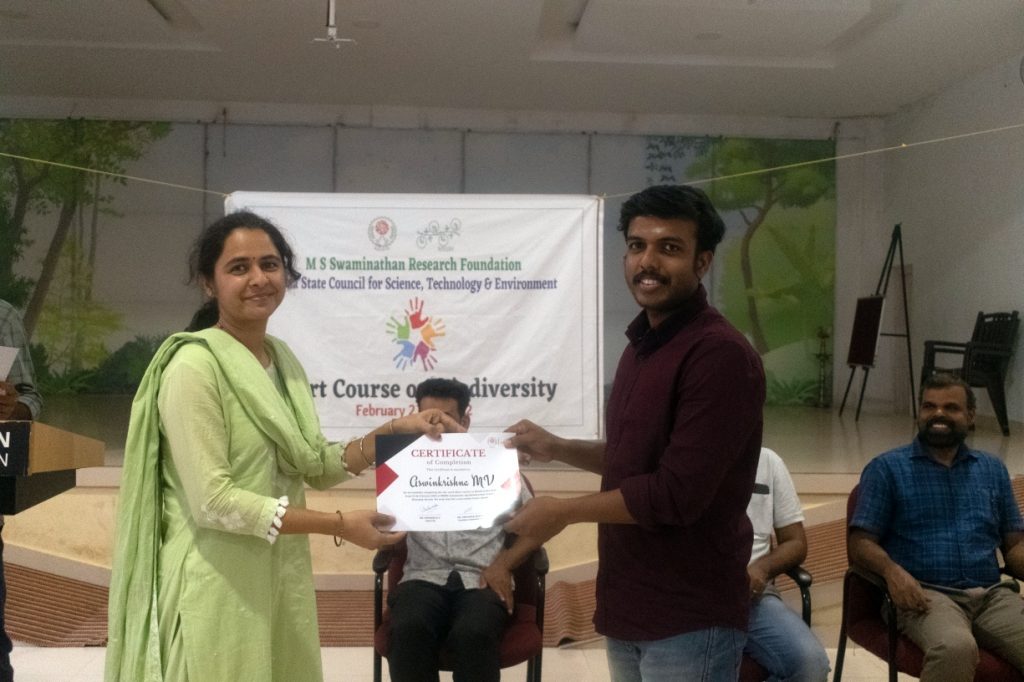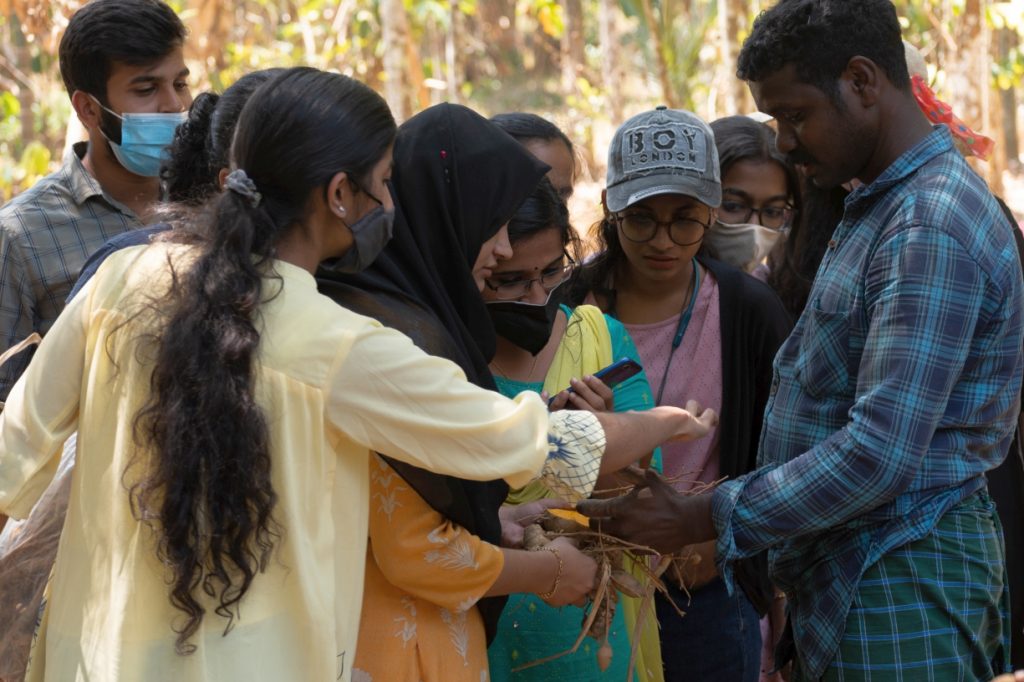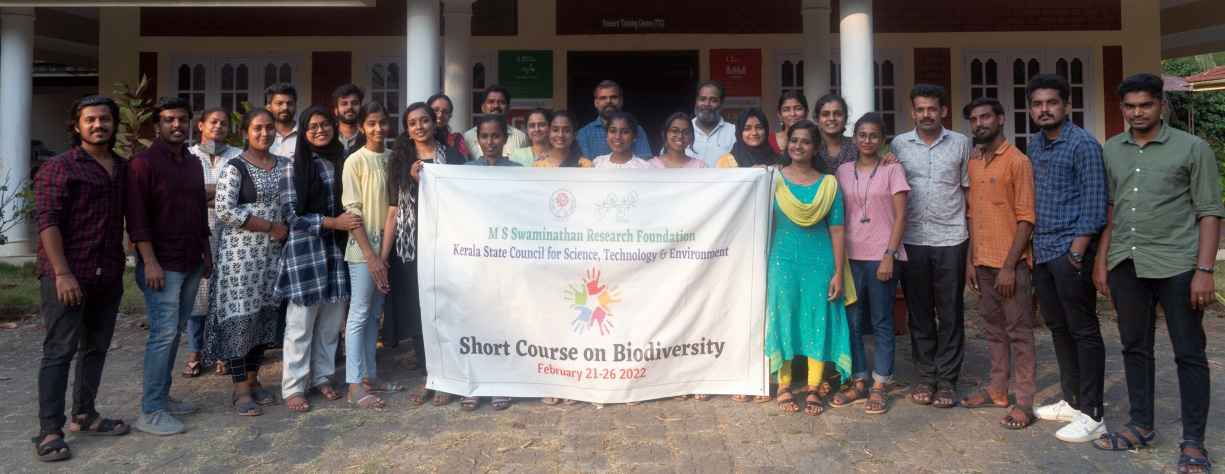
One Week Short Course on Biodiversity
Community Agrobiodiversity Centre (CAbC), M S Swaminathan Research Foundation, Wayanad in collaboration with Kerala State Council for Science & Technology organized a ‘One Week Short Course on Biodiversity’ for graduate students held from 21-26 February 2022. The aim of the programme was to bring together a diverse group of graduates to provide them a knowledge base on biodiversity and at the same time aware them on the importance of biodiversity conservation. All 20 participants showcased a diverse and heterogeneous group representing various districts of Kerala and also various disciplines. Dr. Archana Bhatt welcomed the participants and talked on the objectives of the programme and expectations of participants. Afterwards, Mr. Sivan VV, Senior Scientist, conducted a brief quiz for the students on biodiversity followed by a session on introduction to biodiversity. A brief interaction session was organized with Dr. Anilkumar, Senior Director, CAbC and Mr. Sivan, VV wherein students discussed their queries on biodiversity and expressed their interest in joining the course. Dr. Anilkumar urged upon the responsibility towards conservation of biodiversity.
In the afternoon, Anooj SS, Assistant Professor, KAU held a session showcasing the vast diversity of insects through a informative and interesting presentation. He covered the basic taxonomy of insects and threw light on insect diversity through field experiences and visual presentation. In the evening, a visit to M S Swaminathan Botanical Garden was conducted by Salim where he explained about conservation of trees and identification of various plant species in the campus.
Next day started with a session by Dr. Giby Kuriakose on Major flora in Western Ghats focusing on the treasure among diverse organisms. He also talked about diverse plant species and their usage. Next session was undertaken by Dr. C.P. Shaji in online mode on the aquatic diversity of Western Ghats focusing on fishes diversity, studies on water bodies and endemic species of fishes. Students thoroughly enjoyed the session and wanted to attend again in an offline mode in future. In the afternoon, Mrs. C.S. Dhanya delivered a lecture on threats to biodiversity, threatened species, Red Data Book, need of red listing of species, etc. and emphasized on the need of conservation of rare and threatened species. In the evening, Dr. Archana Bhatt took a session on climate change concentrating on the reasons and effects of changing climate and how it affects biodiversity in general. She also threw light on the adaptation & mitigation practices that can be taken up to combat climate change effects. The students got newer insights on various aspects of biodiversity on diverse areas.
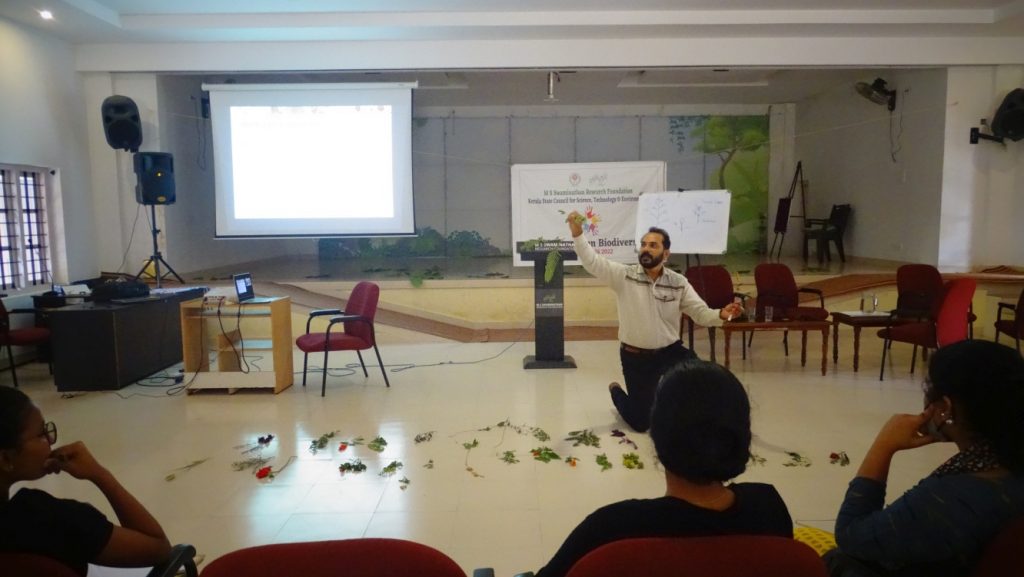
Third day started on a very practical note as the students collected various plant specimens in the morning from the campus. Dr. Kishore Kumar conducted an elaborate lecture cum discussion on plant taxonomy and plant identification. Through practical sessions, students learned to identify various plant species, morphology and other salient features. The offline session and practical were very much appreciated by the participants as they couldn’t attend most of their college in offline mode. In the evening, Joseph John talked about the need and principles of biodiversity conservation and how the biodiversity is getting over exploited in the current scenario.
Next day, an interesting session initiated early in the morning with Bird watching in the campus. All the participants gathered at 6:a.m. in the morning and Mr. Ajayan conducted the activity and facilitated the identification of various bird species and shared details on various bird habits.
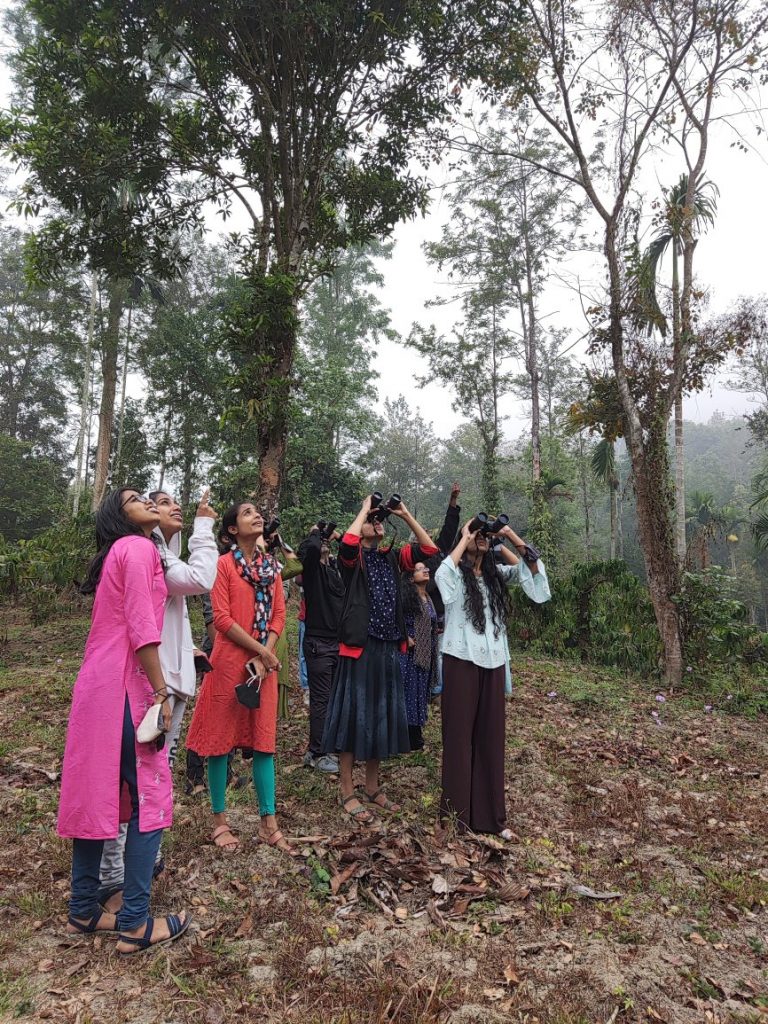
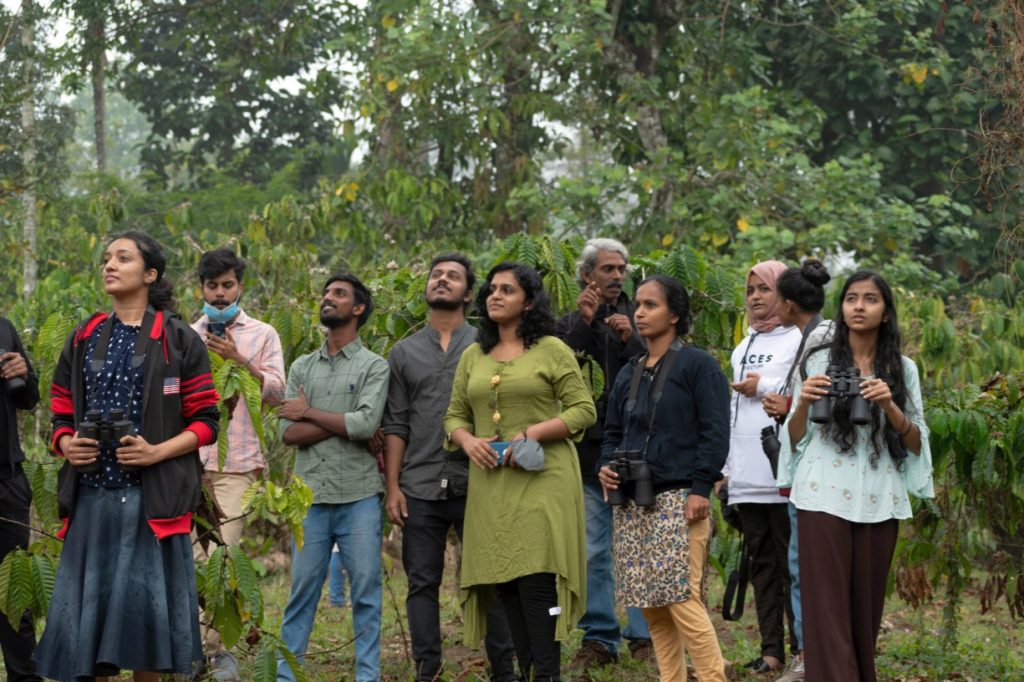
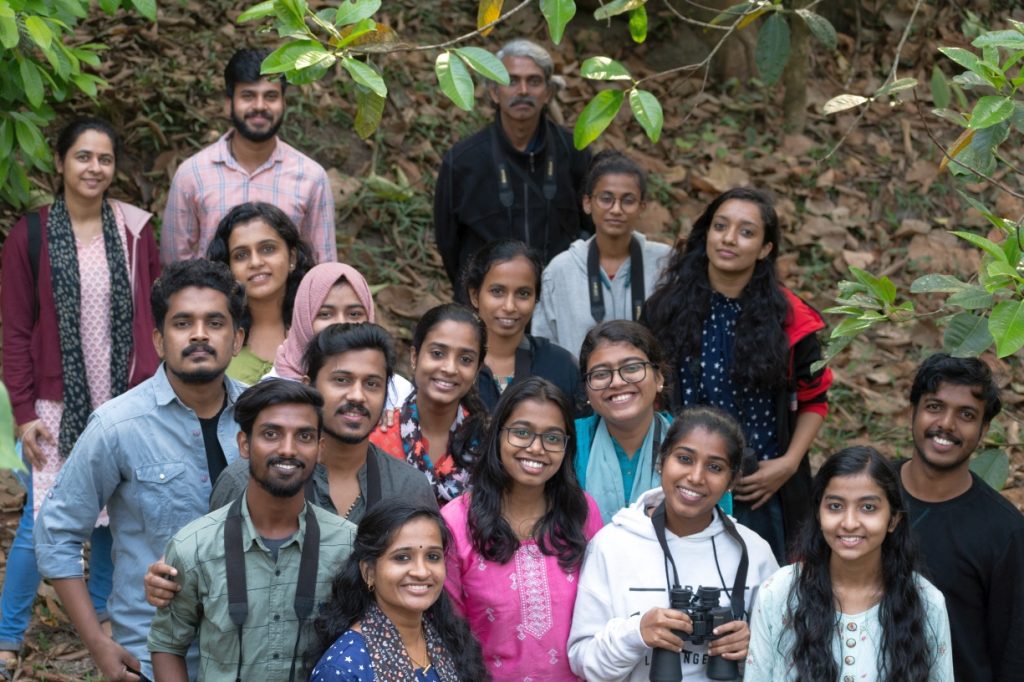
The session was followed by Dr. Merlin Lopus who undertook a session on Biodiversity Informatics focusing on various statistical tools and techniques for analysing data related to biodiversity. Students got newer insights on various methods such as plant and tree diversity, bird survey, use of R for analysis and much more. In the afternoon, Dr. Balakrishnan took session on institutional mechanisms in biodiversity conservation focusing on various laws, institutions, organisations and committees working in the field of biodiversity conservation. The session was followed by Mr. Girigan Gopi who emphasized on the dire need of biodiversity conservation and the methods, tools and practices involved. He also discussed upon the traditional biodiversity and the cultural importance attached with biodiversity conservation. The evening ended with another visit to MS Swaminthan Botanical garden wherein Jithin showcased the importance & use of medicinal plants & endemic plant biodiversity of Western Ghats.
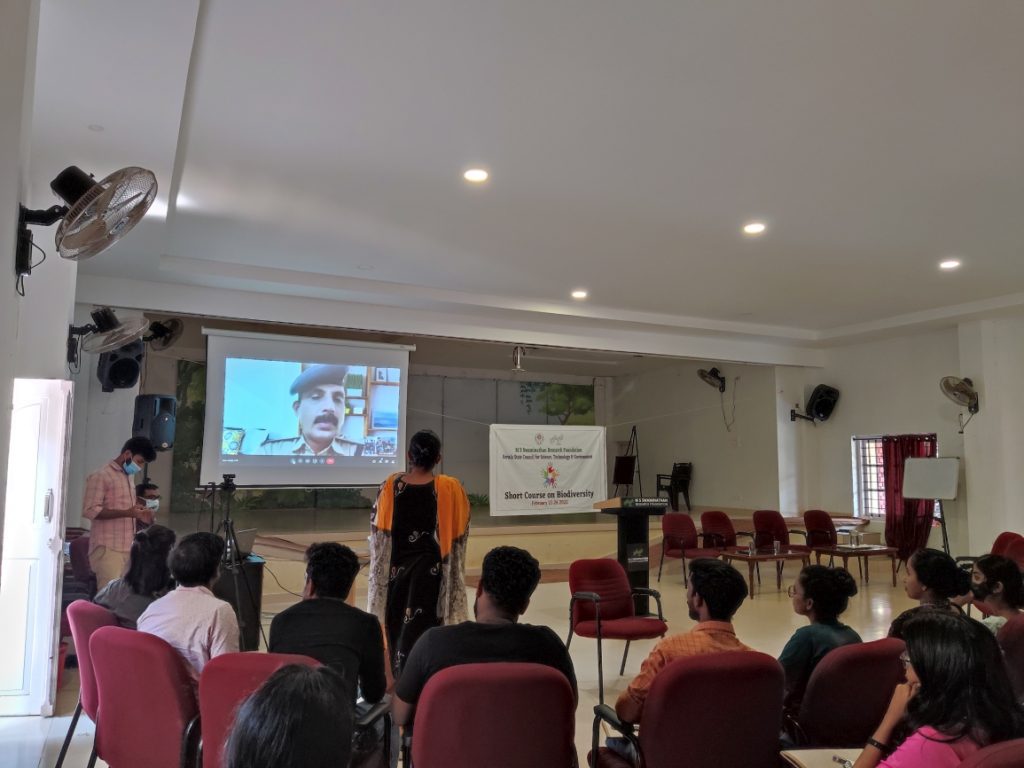
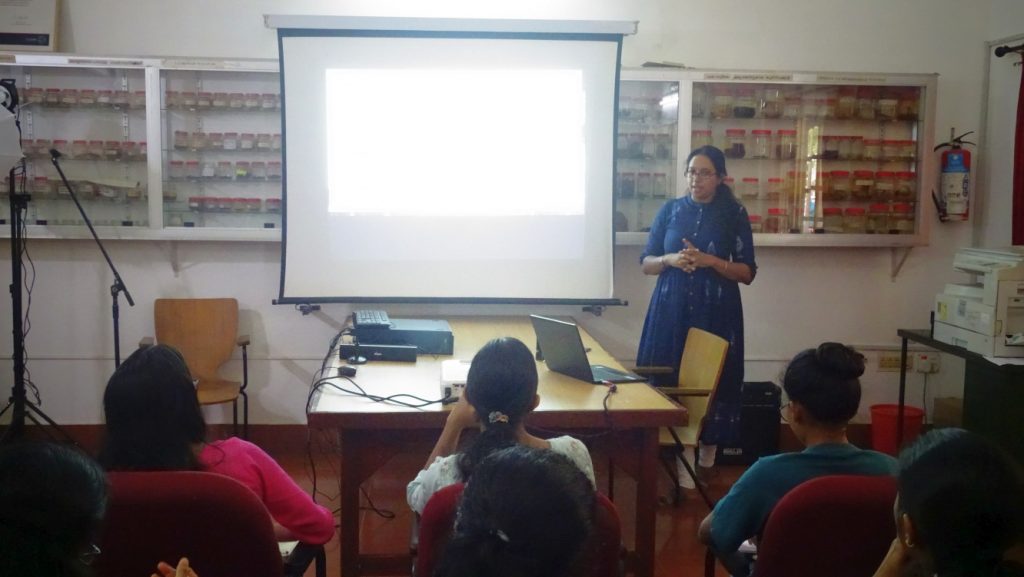
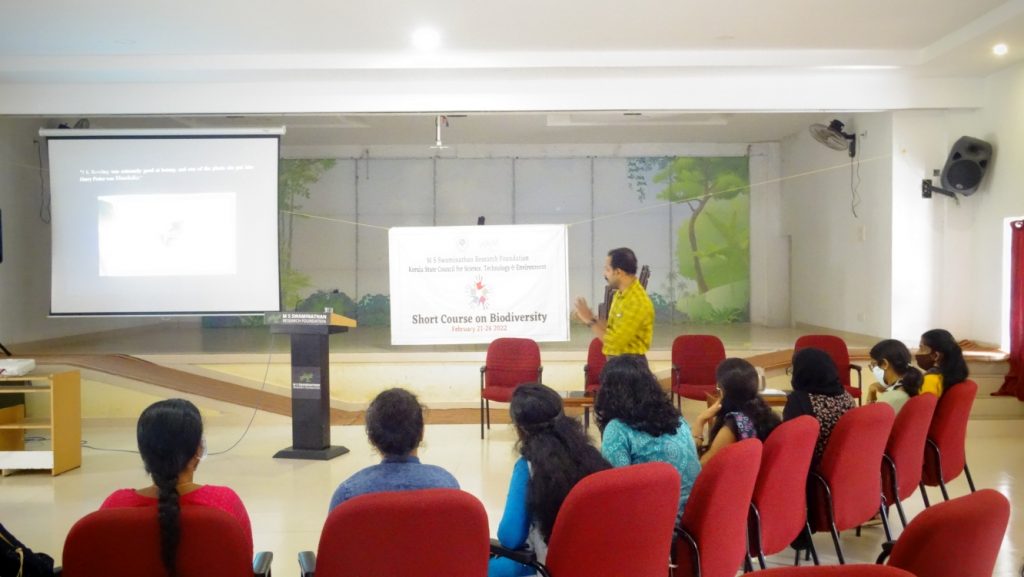
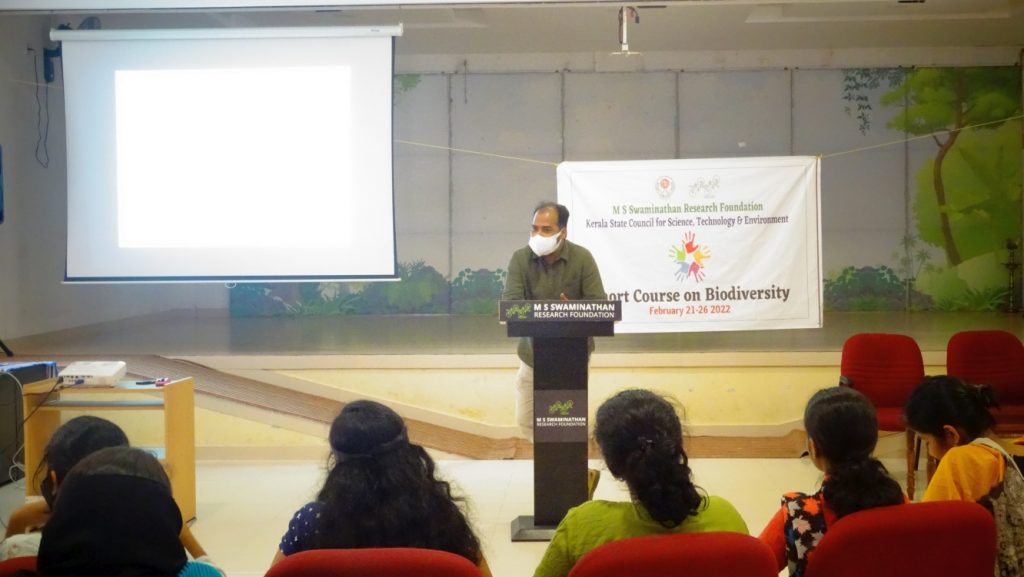
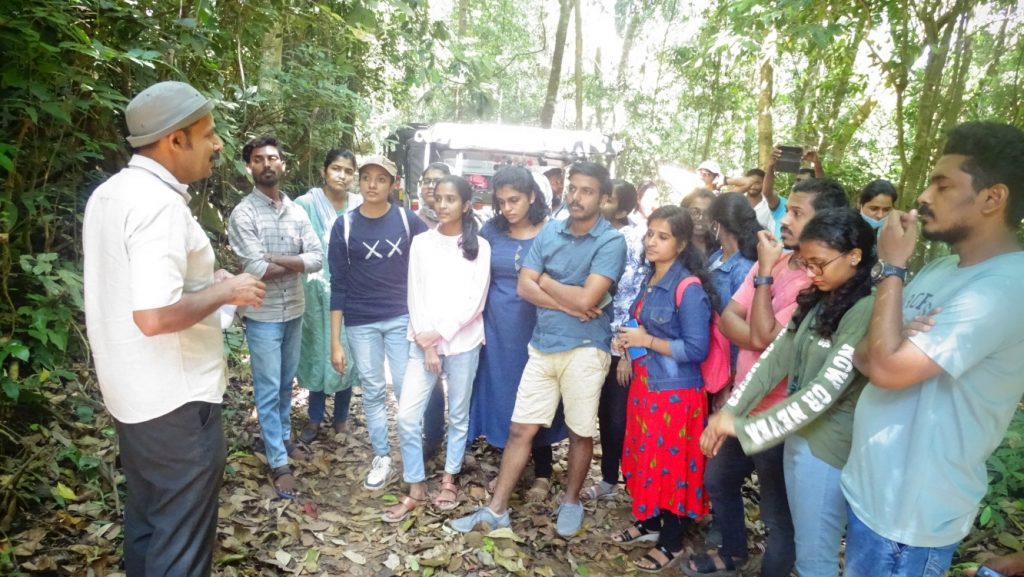
With the second last day of the short course, an entire day was dedicated to forest visit to have the participants an exposure to the biodiversity of the forest area. Students along with Salim, Dr. Archana Bhatt and Abdulla Habeeb explored two forest sites and identified and collected specimens of various floral species. The tour was well enjoyed by the team and they were willing to join such excursion programmes in future as well.
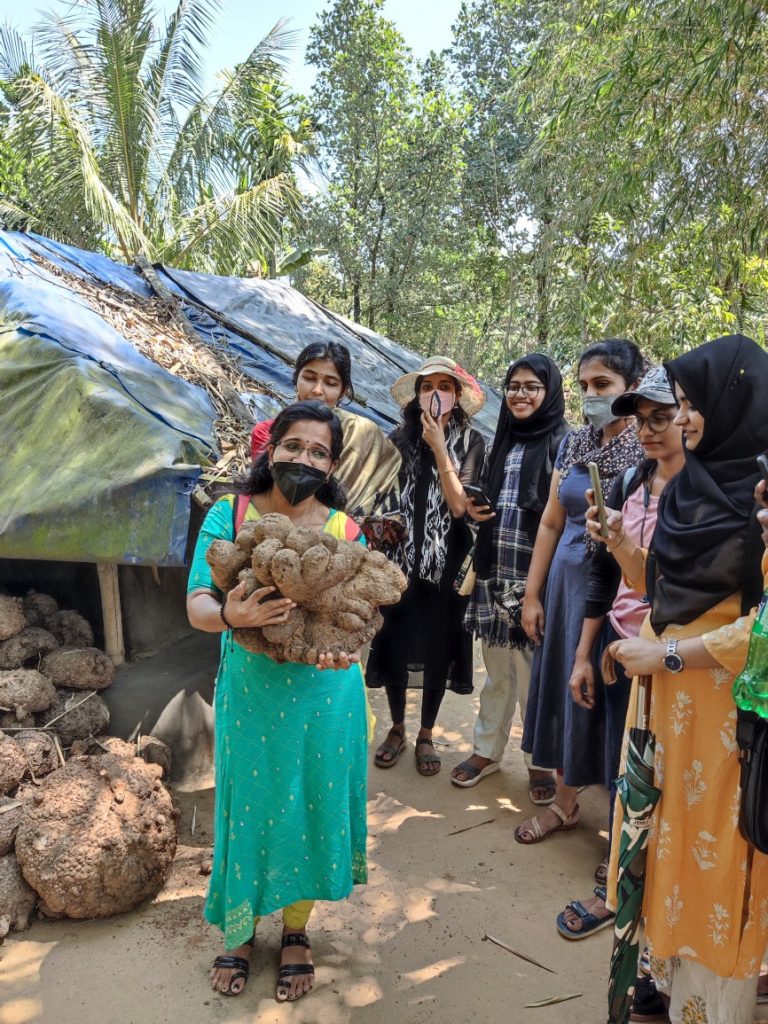
The last day of the short course started with a brief session on community based conservation by Mr. Vipin Das where he talked about various models of community based conservation at CAbC and how it plays a role in conservation along with community empowerment. The session followed with a visit to community conservation site in a tribal hamlet at Madamgunnu, Wayanad and the participants got an overview of community level conservation efforts and their social dynamics as well. Before ending the informative sessions, Mr. Sivan VV took a brief interaction session on People Biodiversity Register (PBR), its preparation and importance in biodiversity conservation.
Towards the end, an interactive session was held among the participants and various resource persons to clear their doubts on various topics that were held throughout the course programme. Afterwards, feedback session and a brief knowledge test were also conducted to know the overall outcome of the programme. Participants from various domains gave a very positive response towards the short course and suggested to increase the tenure of the course and more field visits. The attendees reflected that they need more such courses in future and also some specialized courses in microbiology and biotechnology as well and they attained newer insights on biodiversity conservation. Certificates for participation were also provided to the attendees followed by a vote of thanks. Abdulla Habeeb played a crucial role in coordinating the entire programme. The participants especially acknowledged the support of training coordinators and entire staff of the centre in successful conduction of the programme.

